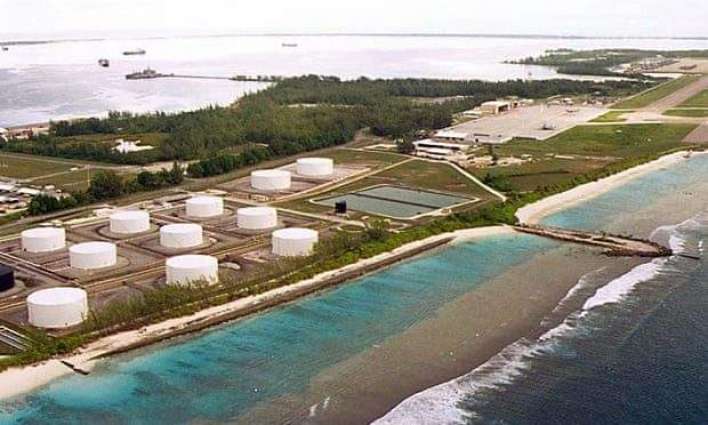The United Kingdom's overwhelming loss in the UN General Assembly's latest vote demanding that its control over the Chagos Archipelago be relinquished is likely to be ignored by London, given the non-binding nature of the resolution, but the vote could further galvanize public support for the Chagossian cause, Stefan Donnelly, the vice chair of the UK Chagos Support Association, told Sputnik
LONDON (Pakistan Point News / Sputnik - 23rd May, 2019) The United Kingdom's overwhelming loss in the UN General Assembly's latest vote demanding that its control over the Chagos Archipelago be relinquished is likely to be ignored by London, given the non-binding nature of the resolution, but the vote could further galvanize public support for the Chagossian cause, Stefan Donnelly, the vice chair of the UK Chagos Support Association, told Sputnik.In a Wednesday vote at the UN General Assembly, London managed to secure just six votes in its favor over a motion submitted by Mauritius giving the former six months to relinquish control of the Chagos islands, a territory it has retained effective control over since granting Mauritius independence in 1968.
"It's not necessarily a positive result as it really all depends on what happens next - it's a non-binding judgement so the UK government could, and early indications are it probably will - choose to effectively ignore it and continue as before," Donnelly said.
He, however, expressed hope that it would be extremely difficult for London to ignore the mounting international support for the Chagossians, who were forcibly removed by the United Kingdom in the 1960s-1970s to make way for the construction of extensive US military facilities at Diego Garcia, a base that has since been used for long-range bombing operations over Afghanistan.
"It would be extremely unfair on the Chagossian people and would be ignoring a lot of world opinion, which I think did effect how people voted how they did as they see the injustice the Chagossians have suffered. So I think continuing to ignore that would be very difficult for the UK government. It's what happens next that is really important for the Chagossian people," Donnelly clarified.
According to the activist, the interests of Chagossians should now take priority, while all parties concerned should cooperate to secure these people's return to their homeland.
"Our interest is in the Chagossian people who have the right to return to their homeland and deserve justice after years of exile and poverty. The UN, the UK and Mauritius can now make it their priority now so all the major parties need to work together now to put this right," he said.
Over the years, Mauritius has maintained that the eviction from the islands along with original separation of the territory are unlawful, citing last February's non-binding resolution from the UN International Court of Justice (ICJ) deeming London had not acted legally in its original retention and de facto separation of the Chagos islands from the rest of Mauritius.
Although Wednesday's vote saw 56 nations abstain, 116 did support Mauritius, a landslide that arguably made the UK position much more difficult in light of ongoing hurdles such as Brexit and future relationships with long-term allies across Europe and beyond.
Speaking to The Guardian newspaper, the Mauritian ambassador to the United Nations, Jagdish Koonjul, expressed surprise at the lack of support for the United Kingdom, something he believed to have been preceded by "huge pressure" from Washington for states to vote in London's favor.
London has however shown little sign of acquiescing to either the ICJ ruling or the General Assembly, stressing its control over the islands is important for counterterrorism efforts and shared interests with the United States.
Addressing the General Assembly yesterday, Karen Pierce, the UK ambassador to the United Nations, said that her country "sincerely regrets" the "manner in which Chagossians were removed from British Indian Ocean territory in the 1960s and the 1970s" but that the resolution set a dangerous precedent, given the "bilateral" nature of the dispute between the United Kingdom and Mauritius.




